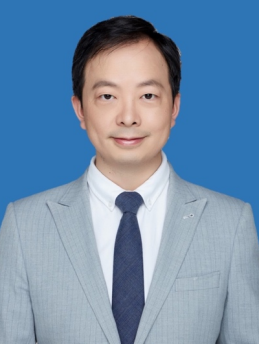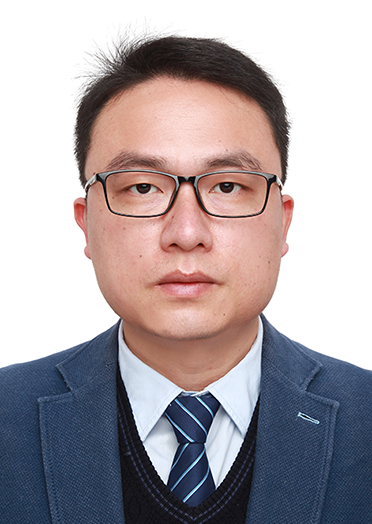
Prof. Haitao Zhang (IEEE Fellow)
Huazhong University of Science and Technology, China
Biography: Hai-Tao Zhang received the B.E. degree in automation and the Ph.D. degree in control science and engineering from the University of Science and Technology of China, Hefei, China, in 2000 and 2005, respectively.,From January to December 2007, he was a Postdoctoral Researcher with the University of Cambridge, Cambridge, U.K. Since 2005, he has been with the Huazhong University of Science and Technology, Wuhan, China, where he was an Associate Professor from 2005 to 2010 and has been a Full Professor since 2010. His research interests include swarming intelligence, model predictive control, and unmanned system cooperation control.,Dr. Zhang was the recipient of National Science Fund for Distinguished Young Scholars. He is/was an Associate Editor for IEEE Transactions on Systems, Cybernetics and Man-Systems, IEEE Transactions on Circuits and Systems II, Engineering, and Asian Journal of Control.

Prof. Guanghui Wen (IET Fellow)
Southeast University, China
Biography: Guanghui Wen received his Ph.D. degree in Mechanical Systems and Control from Peking University, Beijing, China, in 2012. He is currently an Endowed Chair Professor and the Vice Dean of the School of Automation at Southeast University, Nanjing, China. His current research interests include coordination control of autonomous intelligent systems, analysis and synthesis of complex networks, cyber-physical systems, resilient control, and distributed reinforcement learning. He has published more than 200 papers, including more than 200 publications in top-tier journals in the fields of systems and control (TAC, Automatica, etc.), as well as CCF-A conferences including AAAI, IJCAI. Prof. Wen was the recipient of the National Science Fund for Distinguished Young Scholars, the China Youth Science and Technology Award, the Australian Research Council Discovery Early Career Researcher Award, and the Asia Pacific Neural Network Society Young Researcher Award. He currently serves as a Technical Editor of the IEEE/ASME Transactions on Mechatronics and an Associate Editor of the IEEE Transactions on Industrial Informatics, the IEEE Transactions on Neural Networks and Learning Systems, the IEEE Transactions on Intelligent Vehicles, the IEEE Transactions on Fuzzy Systems, the IEEE Transactions on Systems, Man and Cybernetics: Systems, the IEEE Open Journal of the Industrial Electronics Society, and the Asian Journal of Control. Prof. Wen has been recognized as a Highly Cited Researcher by Clarivate from 2018 through 2024. He is an IET Fellow.
Speech Title: Distributed Consensus and Optimization of Multi-Agent Systems with Switching Communication Topologies
Abstract: In recent years, the development of perception, communication, and embedded technologies has had a transformative impact on system analysis and control methods. Modern engineering control systems are increasingly characterized by networked structures and intelligent units. Within this context, the concept of multi-agent systems (MASs) has emerged, and the distributed cooperative control and optimization of such systems have gradually become a research frontier in the fields of systems and control. In practice, due to factors such as the limited communication range of agents and interference in communication links, the communication topology of MASs often exhibits dynamic switching characteristics. This talk begins by discussing the key issues of consensus control in MASs under switching communication topologies, outlining the critical techniques for addressing these problems: the common Lyapunov function method and the multiple Lyapunov function method. For MASs with directed switching communication topologies, it presents the construction methods and consensus criteria of multiple Lyapunov functions based on nonsingular M-matrix theory, and further explores low-conservatism multiple Lyapunov function construction methods based on Lyapunov inequalities and optimization techniques. On this basis, the robust optimization problems of MASs with physical dynamics under switching communication topologies are discussed. Finally, the application of the related theoretical results in the formation control of unmanned surface vessels is shared, along with personal insights on related emerging research topics.
|